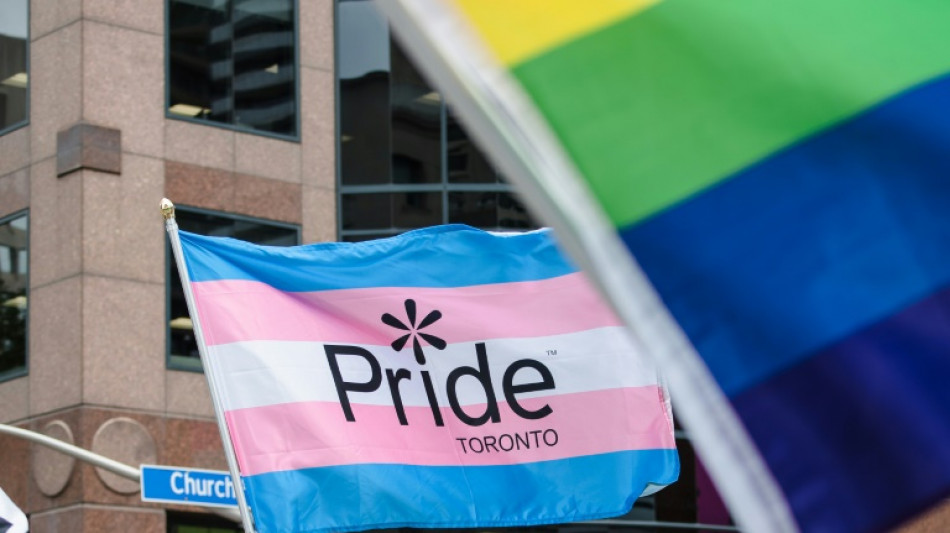

Progressive Canadians say social issues blown off election agenda
For Canadian Zita Dube-Lockhart, whose 12-year-old child receives gender-affirming care, the campaign ahead of Monday's election has avoided issues that matter to her, including LGBTQ rights.
During his decade in power, former prime minister and Liberal Party leader Justin Trudeau repeatedly emphasized social and cultural priorities that are central for left-wing progressives.
But Trudeau's successor and the front-runner to win on Monday, Prime Minister Mark Carney, has pulled the Liberal message towards the center.
Stressing his economic credentials in a campaign dominated by President Donald Trump's trade war, Carney has promised to build "the strongest economy in the G7."
Dube-Lockhart, who lives in the western city of Edmonton and identifies as non-binary, said she understands the "economic fear" Canadians are facing because of Trump's volatile tariff campaign.
"But being Canadian is deeply tied to our leadership on human rights and social justice on the world stage," the 44-year-old told AFP.
"This is who we are."
- 'Backlash' -
University of Winnipeg political scientist Felix Mathieu told AFP the past shift in focus among Canada's left-wing leaders "from solely socioeconomic issues to identity politics" has caused "a backlash."
Conservative leader Pierre Poilievre -- the other main candidate to be prime minister after Monday's vote, who built broad national support as a Trudeau critic -- has promised to eliminate "woke ideology" from the public service.
Asked in an interview last month if Trudeau had been too focused on so-called woke priorities, his former deputy prime minister Chrystia Freeland said "probably."
Carney has made clear he wants to take the Liberals in a different direction, and has said Trudeau did not focus enough on Canada's economy.
Asked at an April 9 campaign event about plans by Alberta's provincial government to curb access to gender-affirming care, Carney said his government would defend the rights of "all Canadians."
One of Canada's great strengths "is recognizing that people can be who they are, they can love who they love," Carney said, while avoiding using the word transgender in his response.
"His answer left much to be desired," Dube-Lockhart told AFP.
- 'Conservative policies' -
Mark Hancock, who heads a Canadian public sector union, said that in this election "social issues are not being discussed."
"It's very sad," he continued.
With Trump's tariffs already causing pain in key sectors like auto, steel and aluminum, "Canadians are so focused in this election on what's happening south of the border," Hancock added.
Discussion of progressive social issues in the campaign has also been suppressed by the struggles of the left-wing New Democratic Party (NDP).
Trudeau's last government did not have a majority in parliament and relied on NDP support, leverage the party used to ensure to its priorities were considered.
Among those include social equity initiatives and expanding health care coverage.
Polls indicate the NDP are headed for an electoral setback, with left-leaning voters flocking to Liberals who they trust more to take on Trump.
Carney, who led the central banks in Canada and Britain, has built a polling lead by assuring voters that his international financial experience makes him the ideal candidate to lead Canada through a trade war.
Hancock said the election "has become a race between a Trump-lite conservative (Poilievre) and a liberal banker proposing what are really conservative policies."
"I'm really concerned about what that means for our country," he said.
Chelsea Thacker, director of Northern Mosaic Network, an LGBTQ organization in Yellowknife in the Northwest Territories, said leaders were letting certain voters down.
"I wish that political candidates were braver in showing their support unapologetically" for minority groups, Thacker said.
M.Walker--VC







